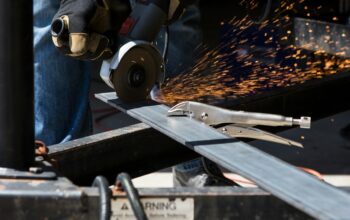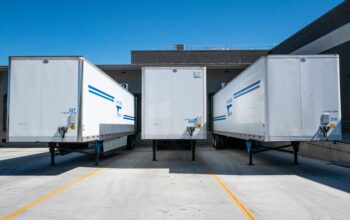Electric power outage is unavoidable and rising in duration and frequency. Almost 60% of blackouts are as a result of violent storms. However, the remaining percentages are caused by a failure in equipment due to overloading the electrical grid. But what can a homeowner do?
Among other things, one can look for a prime power generator for sale, one that can supply electricity to an entire house. Such machines replace the national grid by becoming our personal source of electric power supply. When there is a blackout, the generator will be on standby to automatically supply electricity to your home or office.
However, such generators are not cheap and the decision on whether or not to buy is usually a tough one. We will provide you with some details that can help you decide on the generator to purchase.
Reasons to Get a Personal or Commercial Generator
Getting a generator is a good investment and here is why:
1. Convenience
When you have your own power supply, you are at peace even when you are not at home or in the office. This is because when there is a blackout, the generator will automatically supply electricity to critical units such as the freezer/fridge, water dispenser, and air conditioner.
It can even light up the entire house. That way, you can continue working on the computer or watching a game as if nothing happened. You may want to check out https://www.consumerreports.org/generators/portable-vs-standy-generators-which-is-right-for-your-home/ to know which type of generator is suitable for you.
2. Safety
You do not need to handle power cords and gasoline. Also, there is a reduction in the probability of a fire outbreak, electric shock, and carbon dioxide poisoning. With a personal generator, you can maintain your home or office security systems, power medical equipment, maintain the freshness of your food, and enjoy a safe temperature indoors.
3. Value
Your generator is one investment that will pay for itself over time. It increases the reselling value of the property and automatically supplies power to your home if there is an outage. It also helps to keep your sensitive electronics clean and free from damage due to high voltage from the grid or unplanned outages.
How to Choose a Standby Generator
Most homeowners may prefer a standby generator. So, we will outline the steps that will help you choose one.
1. Ascertain Your Power Needs
You need to find out the amount of power you really need when there is an outage. You also need to decide whether you only want to back up your crucial units like the air conditioner and refrigerator, or the whole house.
Large generators are rated in kilowatt or kW. This is a measure of the machine’s electric power output. 1 kilowatt is approximately 1000 watts. Knowing this, you can check the wattage of your critical units to know which one to turn on during blackouts.
During summer, an unplanned power outage can make your life miserable. Also, an icy storm during winter can crash your vacation plans. This makes pipes prone to bursts or leaks. You may want to watch this video to know the size of the generator to get and tips for preparing for storms.
2. Choose the Fuel Type
This is the first thing to decide on when trying to get a standby for an apartment. Standby generators of about 22kW typically use either liquid propane or natural gas. However, if you want one that operates with diesel, you will upgrade to a liquified-cooled entire house type that may cost more.
Both diesel and liquid propane require tanks that are big enough to run the machine properly. Likewise, the gas lines and meter for the natural gas must be the exact size. Before the installation, the contractor will check this and let you know if everything is in order. However, this information would be in the machine’s manual.
3. Select the Transfer Switch
We know that light bulbs require switches to come on; the generator requires one, too. An ATS (auto transfer switch) ensures that your generator automatically turns on as soon as it detects a power outage.
It works by continuously picking up utility power. When it detects an outage, the engine simultaneously starts then disconnects the power supply from the grid. Afterward, the electricity from the generator will energize the panels of your home.
It is important to get the correct switch for the type of machine you plan to get because they will work together when restoring lost power. To know the right one for your machine, you can check the electric service panel amperage. You will find this info on the major breaker of the electric panel (the large pull-out on the top side) or the installer can verify this information.
Generally, the main breaker of an average-sized building is 200 amp. This means the maximum electric power this building requires is two hundred amps. Smaller homes that are old might have service panels of about 100 – 150 amps.
Getting a switch of the same amperage is crucial for maintaining the life of the electric panels in your home. You may want to visit https://electricalengineeringresource.com/3-things-to-think-about-when-selecting-an-automatic-transfer-switch/ to know more about an auto transfer switch.
Conclusion
A blackout is not a pleasant experience and getting a machine that can automatically supply electricity to your home at such times, is essential. There are different types of generators depending on what you need them for. But ascertaining your power needs will help you to know which size to buy.




